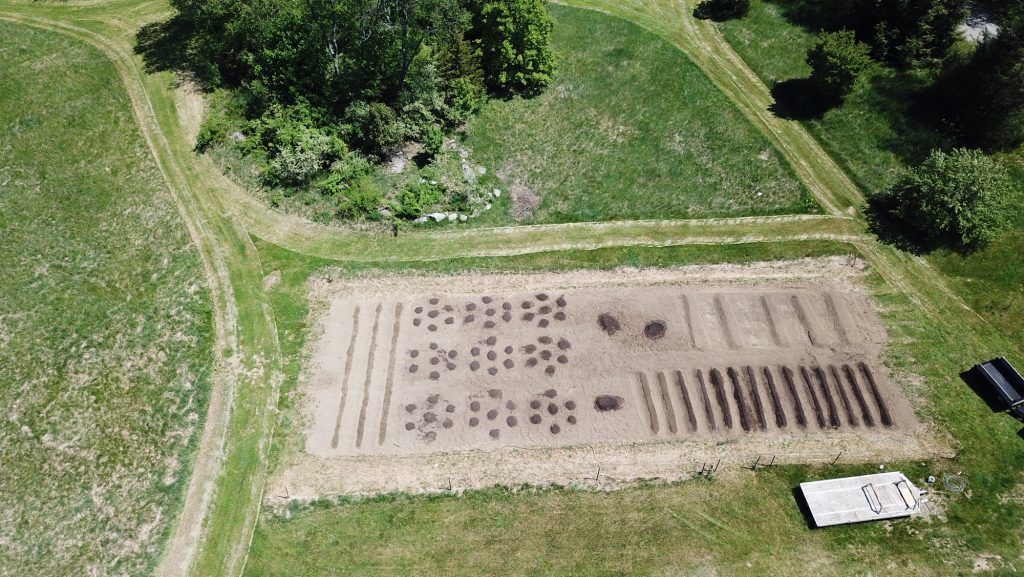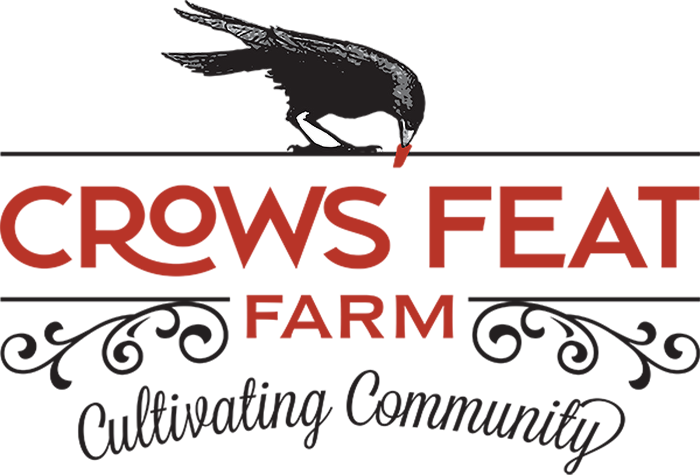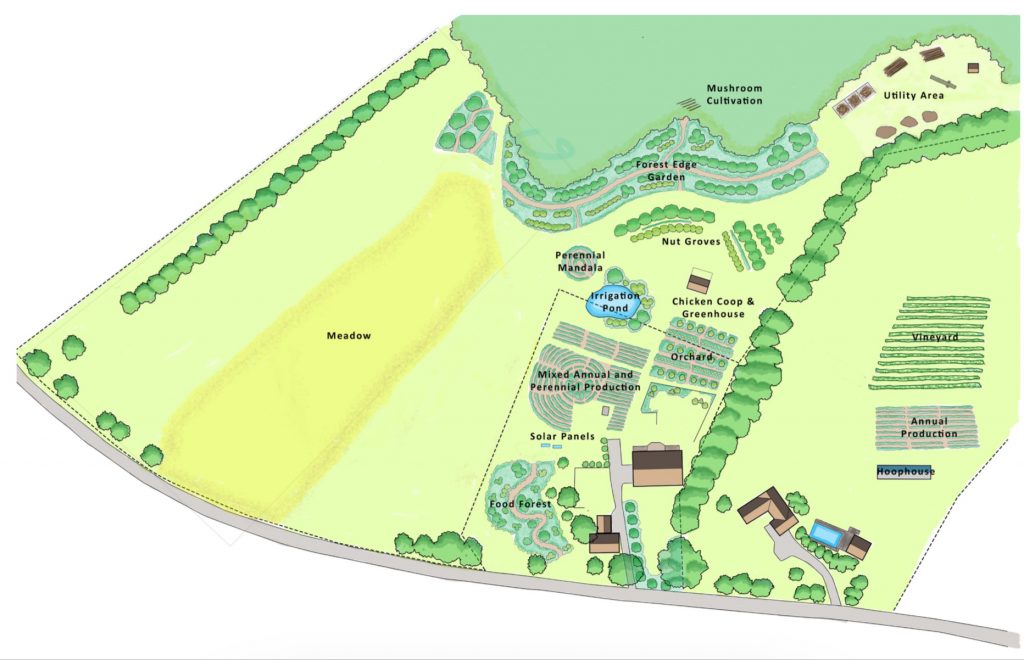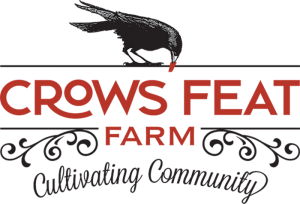Permaculture
Permaculture is a set of design principles centered on whole systems thinking – simulating or directly utilizing the patterns and resilient features observed in natural ecosystems. It uses these principles in a growing number of fields from regenerative agriculture, rewilding, and community resilience.
The term permaculture was coined by David Holmgren, then a graduate student at the Tasmanian College of Advanced Education’s Department of Environmental Design, and Bill Mollison, senior lecturer in Environmental Psychology at University of Tasmania, in 1978. It originally meant “permanent agriculture”, but has been expanded to stand also for “permanent culture”, since social aspects were integral to a truly sustainable system as inspired by Masanobu Fukuoka’s natural farming philosophy.
The Crows’ Feat permaculture design plan capitalizes on natural aspects of the beautiful landscape – fields, forests and ponds – to cultivate flora, fauna and food in a regenerative and self-sustaining system. By restoring natural meadows, fertile soils, and abundant habitat for insects, birds and other wildlife, we hope to create a vital resource that can sustain our human and animal communities in this serene idyll of seacoast New Hampshire.




